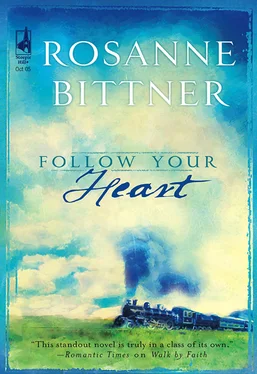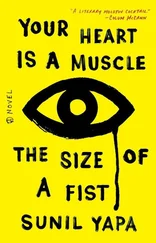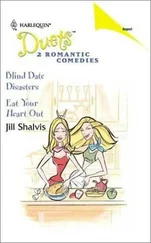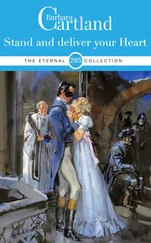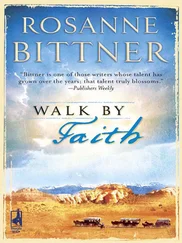“Perhaps it is,” she said to the chickens. Hard work kept a person busy, with no time to think about, let alone act on, sinful ways. She remembered her mother telling her that when she was just a little girl.
Hens pecked at her hands as she shooed them away from their nests so she could collect their eggs. She laid the still-warm eggs in her basket, glad to find plenty to cook a big breakfast.
She ducked out of the hen shed, enjoying the warm morning sun. It was times like this when she missed her mother the most. Yolanda Svensson would have gloried in a morning like this. Although she’d died ten years ago when Johnny was born, Ingrid still had vivid memories of the strong, brave woman.
She headed back to the family’s soddy, where coffee was still warming on her proudest possession, a Concord cooking range ordered from Pennsylvania through Grooten’s Dry Goods in nearby Plum Creek. In winter it warmed the house much better than their stone fireplace ever had. How her mother would have enjoyed that stove!
Before she reached the house, the long wail of another Union Pacific locomotive cried out through the morning air. That would be the 7:00 a.m. She’d never ridden a train—couldn’t afford it—but she could time her day by their regularity.
She went into the house and set her basket of eggs on a small table near the entrance, being careful not to get mud on the wood plank floor. After her father had laid that floor last year she’d felt as though she were living in luxury. The soddy’s mud-plastered walls were now whitewashed, and two real glass windows let in sunlight. The sod roof had been replaced two years ago with real wood beams, wood planks and shingles, so she no longer had to hang blankets under the ceiling to catch dirt and bugs, which pleased her greatly.
She turned around and made her way to the cowshed, stepping inside to see that her brother had collected enough milk to garner a good amount of cream for making butter.
“Good job, Johnny,” she praised him, taking the bucket. Together they headed back to the house, the disappearing locomotive still wailing in the distance and leaving a trail of smoke on the horizon.
“Ingrid?” Johnny asked.
“What is it?”
“What if I don’t want to be a farmer when I grow up?”
Ingrid stopped walking and faced him. “Of course you will be a farmer, Johnny. That is why Far is building up this land,” she reminded him, affectionately using the Swedish term for father. “This farm will be yours someday.”
Johnny looked across the flat expanse of farmland at the lingering smoke in the air. “Maybe I’ll want to be a locomotive engineer, or ride the caboose. Maybe I’ll just get on a train and go as far as it will take me.”
Ingrid could just imagine the picture of adventure trains conjured up for a boy of ten, the whistle beckoning a child’s spirit to explore a faraway land. “When you are older you will see what is truly important, Johnny. Honoring your father is important. Working the land is important. Perhaps you might leave for a while, but this is your home, and you will always come back.”
Johnny frowned. “How do you know?”
These were times when Ingrid missed her beloved mother the most, sure the woman would always have the right answers. “I just know it, Johnny, in my heart. The only thing that matters in life is our loved ones, the land and our faith in God.”
Johnny just shrugged. “After church Sunday can I go watch the trains?”
“You will have to ask Far. It depends on how much we need in the way of supplies and if we need your help loading them. I don’t want Far lifting too much because of his back.”
“Well…” Johnny regarded his sister. “Why don’t you marry Carl? He could help us a lot, and Far wouldn’t have so much work to do.”
Ingrid shook her head at her brother’s reference to their closest neighbor, another Swede named Carl Unger, who had hinted more than once to her father that he was interested in marrying her. “Marriage is not something to take lightly, Johnny. And I do not love Carl in the right way to marry him.”
“But he’s a real good man, and I really like him.”
“I know, Johnny, I know.” At nineteen, Ingrid knew she should most certainly be thinking about marriage, but there was so much to do on the farm, plus all the cooking and cleaning and helping raise Johnny, that she’d seldom had time to ponder marriage or to get involved in the process of being courted. Besides, no one had come along who’d made her heart beat a little faster with true feelings of love. Her father seemed to think she was getting old enough that she should no longer be too picky, and he felt Carl was by far the best man for her.
Ingrid was not sure of that at all. When she was little her mother had once told her to marry for love and love alone. Love, and your faith in God, can help you through just about anything life hands you, she’d told her. Since then Ingrid had held on to the dream that someday the right man would come along, and she would know it in her heart when he did.
Early May
Wilson Beyer adjusted his tiny square spectacles, studying the list of names in front of him. As was his habit, he twitched his tiny mustache and cleared his throat every few seconds, which irritated Jude to no end, even though he liked the man.
“I prepared a list for you, just as you asked in your telegram,” Wilson told Jude. “And I have men ready to go out with you to order these settlers off their property.”
Jude took a thin cigar from his vest pocket, then put it to his lips and leaned down to light it from a tapered candle burning on Wilson’s desk. Wilson actually thought burning a candle would somehow relieve him of some of his spring allergies. “I don’t need the extra men,” he told Wilson. He puffed on the cigar to get it burning.
Wilson’s eyebrows shot up in surprise. “Oh? I should advise you that these settlers won’t leave peacefully. It could even involve firearms.”
Jude shrugged. “I’d rather try a less forceful approach. I intend to go visit each settler on my own first.”
“Your father won’t be very pleased.”
“You don’t need to tell me that. I’ve never been able to please him anyway. Besides, all he told me was to come down here and prepare the settlers for the inevitable, so I will handle this the way I see fit.”
Wilson cleared his throat again. “Must you smoke that cigar? I have enough trouble with the pollen and dust and humidity in this cow town without breathing that wretched cigar smoke.”
Jude took the offending article from his lips and eyed it a moment. “Actually, it calms me, but if it stirs up your endless list of allergies, I’ll put it out for the moment.”
Wilson smiled, showing dark, tiny teeth. “Well, that’s kind of you, Jude. I didn’t mean to be rude, but I swear, if you didn’t pay me so well I’d hop the next train back to Chicago.”
“Yes, the air is so clean in Chicago,” Jude answered wryly as he stamped out the barely smoked tobacco. He looked around the plain, unpretentious office and sat down in a wooden chair across from Wilson’s desk. “Omaha is growing fast,” he added. “Someday it will rival Chicago.”
Wilson grunted a laugh. “I’ll be long dead from allergies by then.”
Both men laughed as Wilson handed over the list of settlers’ names and locations. “You have your work cut out for you, Jude. The people on that list will either have to get off their land or buy it at the going rate, which is more than most of them can afford.”
“I know.” Jude scanned the list, still irritated at the job his father had given him. “What do you think of all this, Wilson?”
Читать дальше
